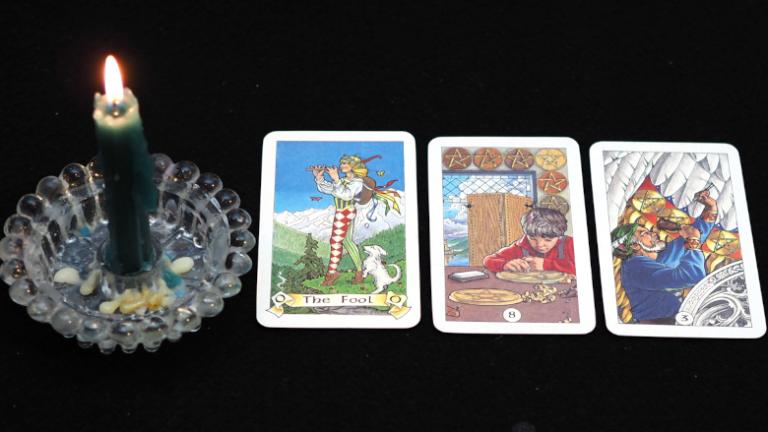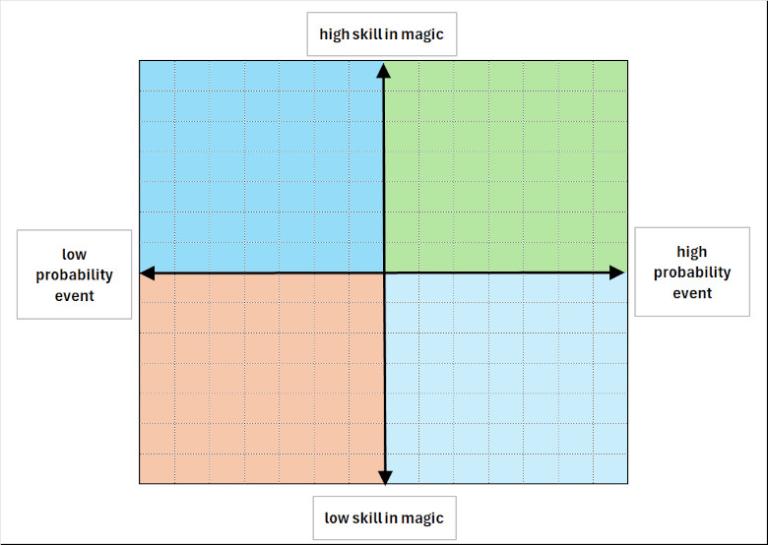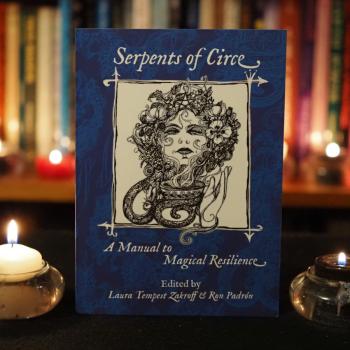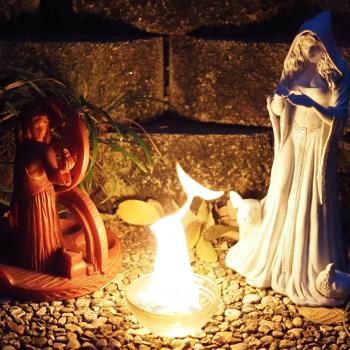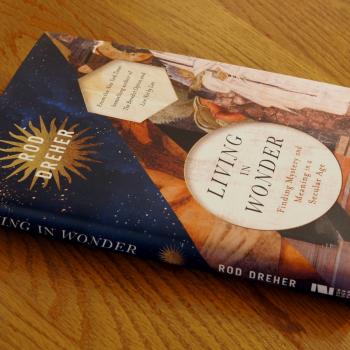Too many people – many of whom call themselves witches – are unable to recognize when their magic works. They never experience the thrill that comes when something you worked spells for manifests in the ordinary world. More importantly, they’re unable to learn from both their mistakes and their successes, and they never build the confidence they need to work magic effectively when they have an urgent need.
For the last several years I’ve been encouraging my newsletter readers to work magic at every full moon. Too often we neglect to hone our skills, and then “whenever you have need of anything” happens we’re unable to respond as well as we’d like… as well as is necessary.
Practicing magic is good. So is reviewing our magical workings. And celebrating our magical successes? That’s awesome.
What do we mean by magical success?
If you summon a demon to bring you a bag of gold, at the end of the night either you’ve got a bag of gold that smells faintly of sulfur or you don’t. Most magic, though, isn’t so black and white.
Let’s say you need a new job. So you pray to your Gods and ancestors, and you make special offerings. You anoint candles and burn them. You meditate on the 8 of Pentacles, the 3 of Pentacles, and perhaps The Fool (for new beginnings).
And also, you update your resume and include all the current hot keywords. You load it on all the job search websites, and you sift through those sites looking for promising matches. You talk to your friends in your field and see if any of them know anyone who’s hiring. You visualize all this coming together in multiple phone calls, several in-person interviews, and at least one good offer. Six weeks later you’re starting a new job that, while not perfect, is a good fit with your skills and needs.
Is that a success? Inarguably.
Is it a magical success? Maybe.
On one hand, if you don’t do the mundane stuff you’re not likely to get any offers. It’s not impossible – I once had a former boss call me up out of the blue and offer me a job – but it’s not likely either. On the other hand, each posting has dozens if not hundreds of applicants. What makes your resume grab a recruiter’s attention, and then a hiring manager’s? What makes you cruise through an interview with all the right responses instead of fumbling over your words – or makes the hiring manager hear what you meant to say instead of what you actually said?
What moved the odds on getting a particular job from 2% to 25%, and then from 25% to 75%? That’s the magic.
Maybe you really are that much better than everybody else at this particular job. Or maybe your magic shifted the odds in your favor.
What does recognizing your magical successes accomplish?
You aren’t trying to build up evidence to convince materialists and skeptics that magic is real. Their metaphysics doesn’t allow for magic and trying to change their minds is a waste of time. Pagans don’t proselytize and witches don’t recruit (well, I imagine some do, but most witches I know have more would-be students than they want).
Rather, recognizing your successes convinces you that magic is real, and encourages you to practice more and more deeply.
We live in a society that says fairy tales are for kids and that uses “magical thinking” as an insult of the highest order. For most of us, whatever natural magic we had as small children was shamed out of us by late elementary school. So of course we’re not exactly sure that magic works.
It’s OK to “fake it till you make it.” But at some point, we need to stop faking it and begin each working from the assumption that the magical working we’re planning will accomplish what we target.
The second reason we need to recognize our magical successes is so we can learn from them. If something worked once it’s likely to work again. If something didn’t work, we need to figure out why and what we need to do differently next time. In 2022 I wrote The 5 Real Reasons Your Spells Didn’t Work. I won’t repeat that here, but I will re-emphasize the importance of studying both our failures and our successes so we can learn from them.
And the third reason? Because recognizing that your magic worked feels good. It’s a sense of accomplishment – and a recognition of a blessing – that feels amazing. I like to feel that way any time I can.
Keep good notes!
OK, that’s why we should do this. Now, how do we actually do it?
It starts with keeping good notes. What did you do, how did you do it, and when did you do it? What else was going on at the time? What was the phase of the moon? Don’t bury yourself in minutiae, but record as much as you can.
Maybe you hand write it in your Book of Shadows. Maybe you keep it in an online journal. Mine is in a Notepad text file – and it’s backed up in three places. Do whatever works for you, just do something.
Writing everything down has the additional advantage of making it less likely you’ll forget a critical step in the process, whether you’re doing an elaborate formal working or an impromptu spell.
If I had to condense this post down to one line, I would only need three words: keep good notes.
Review your notes periodically
Sometimes you recognize your magical successes because they smack you in the face. You get the job you worked magic for last month. Your money spell brings the exact amount you targeted in an ordinary but completely unexpected fashion.
Other times your success is not so obvious. I did a major magical working out of the PGM a few years ago. It wasn’t until four months later I realized my reaction to stress had improved dramatically.
Reviewing your notes every month or so reminds you of what you did, why you did it, and what you were trying to achieve. From there it’s a simple matter to determine if it worked, if it didn’t work, or if it went in a direction you weren’t expecting.
I have two long-term hypersigils going. The first has been going for over ten years – the second for about three years. The final outcome won’t be determined for three more years, and perhaps longer. But so far so good. If things had blown up the workings would be clear failures by now. I’m making progress toward the goals – that’s a partial success, and that’s worth recognizing.
Learn to estimate probability
How do you know what worked was magic and not mundane effort?
Demons bringing bags of gold notwithstanding, most magic works indirectly. It doesn’t make things happen – it improves the odds that they will happen. If you work magic for a very low probability event, even a very powerful spell is unlikely to bring the results you want. This is why lottery magic doesn’t work – the odds are simply too long.
On the other hand, good magic can move an event with a 25% chance of happening to 75%. That’s not going to bring what you want every time, but if it works three times out of four, that’s a good thing.
The lower the odds that something will happen, the more likely that magic was the deciding factor when it does.
See the chart below. Your best results are always going to come from the upper right quadrant: the things that already have a high probability, where you have skill in the kind of magic that will move the odds. There’s no sense in working magic for something you can accomplish with mundane effort 100% of the time. But if the odds are 85% in your favor, working magic to move them to 95% can still be useful – and is still a magical success.
The more you do magic, the more you recognize your successes and deconstruct your failures, the more you deepen your knowledge and refine your techniques, the better your magic is going to get. That moves things upward on the chart – and improves the overall odds that you’ll get what you’re working for.
Han Solo said “never tell me the odds!” There’s something to be said for diving into a low probably event driven by need and expecting it to work out of confidence and arrogance. But if you can learn to estimate the odds – something that comes with observation and lots of practice – you can do a better job of recognizing your magical successes.
Avoiding lust of result
Aleister Crowley warned against “lust of result” – worrying so much about whether a spell works or not that you don’t give it time and space to work. A traditional chaos magic working includes the line “does not matter, need not be.” Do the magic and then forget about it, at least until it’s time to review your notes.
Of course you can’t just forget about your money spell when you’re trying to make rent before the end of the month. But you can follow the lead of the Zen Buddhists: acknowledge where your mind is going, release it, and then go back to something ordinary. Buddhists say to go back to focusing on your breathing. I do better with a brief prayer and then returning to some mundane activity.
Thumper Forge has his own recommendations for avoiding lust of result, told as only Thumper can.
Do your magic, and then learn to let it go so it has the room it needs to work.
Building better magic
For years I have said “magic doesn’t work by belief – magic works by action.” The best way to believe in magic is to do magic, because if you do the spells right you’ll get results, and sooner or later it gets easier to accept that the magic is working than to keep rationalizing your results away.
I still think that’s a valid approach. But the more I practice, the more I read, and the more I talk to people who do this kind of work, the more I’m starting to think that belief is not irrelevant.
People who believe in magic get better magical results.
Some of this is because people who believe in magic tend to work more magic, and more tries means more hits. But especially in the realm of visualization, confidence makes a big difference. There’s planting a seed in your subconscious and letting it germinate and grow, and then there’s creating something in the world of spirit and knowing that it will manifest in the ordinary world.
As I will it, so mote it be.
That kind of confidence only comes with recognizing success after success after success.
Do I have that level of confidence? I have a lot more than I did five years ago, and tons more than I had when I first started this journey. But I still have room to grow, and so I’ll do my best to recognize my magical successes, and celebrate them, and learn from them.
And I hope you will too.


